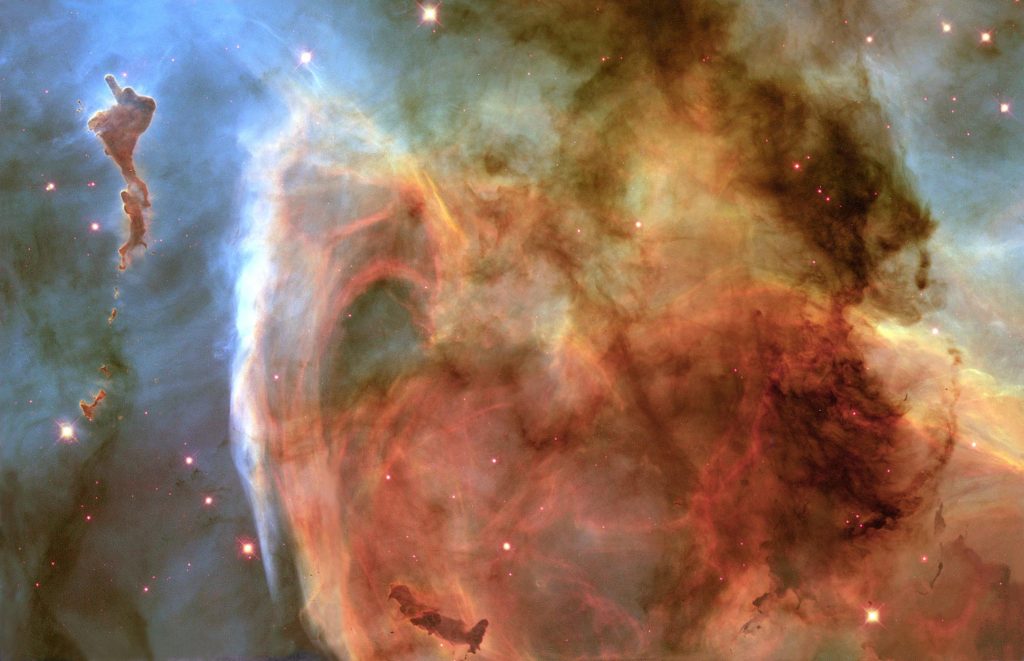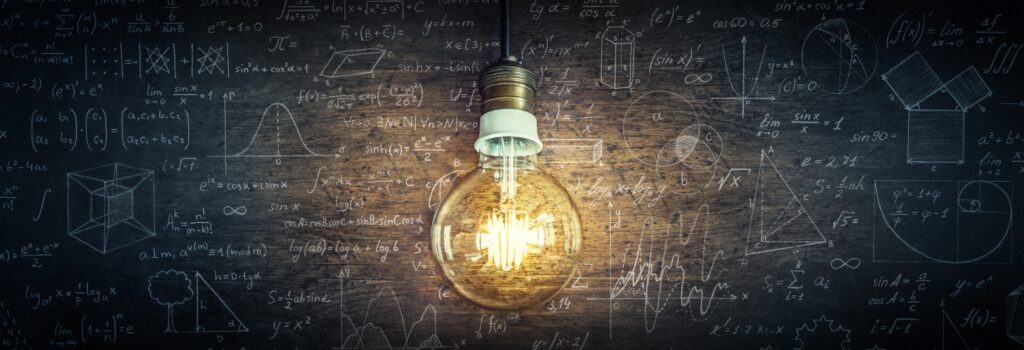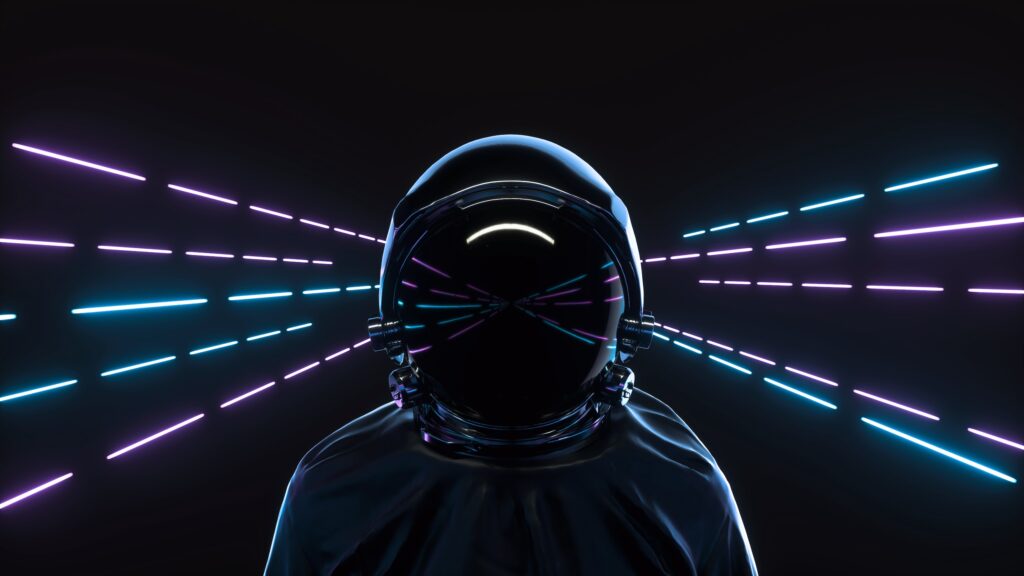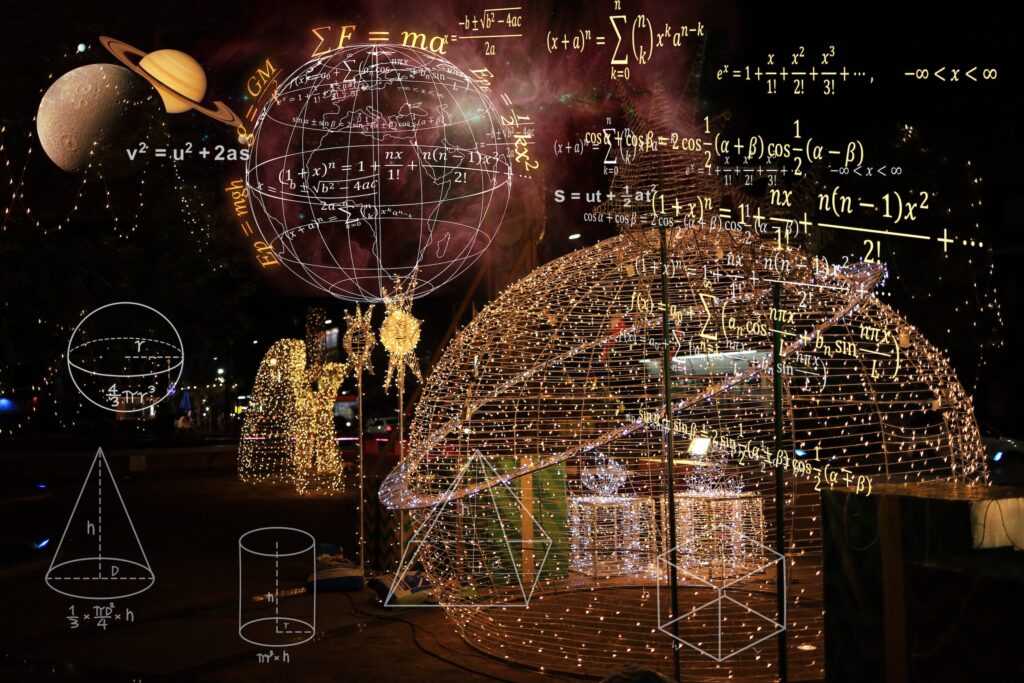|
Does Analytic Idealism limit the scope of its own conclusions and implications because of its adoption of realist, empirically-focused, scientific concepts and argument structures? If so, can the notion of a meta-conscious (that is, self-aware, deliberate) universal consciousness be reconciled with it? Dr. Grego argues precisely so in this critical essay.
|
Hans Busstra and Dr. Lídia del Rio talk to Dr. Matthew Leifer, Assistant Professor of Physics at Chapman University, about the epistemic interpretation of quantum mechanics. Classically, when physicists call themselves ‘realists’ they mean that we should assume that a physical, observer-independent universe is fundamental. But if this counts as realism, anti-realism is perhaps the more respectable position. Leifer points, for instance, to ‘Bell-Wigner mashups’: thought-experiments that entangle different observers to arrive at disturbing consequences; for instance, that there is no ‘absoluteness of facts’ for all observers, in a classical sense.
|
Dr. Colborn argues that, perhaps surprisingly, the worldview of the technology elite is shifting from fundamentalist materialism to a form of apocalypticism that echoes fundamentalist Christianity. This shift in belief is, according to Colborn, not based on an honest search for truth, but instead an attempt to legitimize agendas of power and control. As such, it risks dehumanizing humanity. The analysis in this essay is particularly important in today’s world of emerging agentic AI, wherein—insofar as we believe that AI mechanisms are conscious—we may end up believing that conscious beings are mere mechanisms. Dr. Colborn has just published a book with our own imprint, Essentia Books: What Lies Beyond.
|
In this interview, Dr. Philip Cozzolino, an associate professor of psychiatry and neurobehavioral sciences at the University of Virginia, talks with Natalia Vorontsova about his research results and methods for dealing with the fear of death. He also delves into intriguing reincarnation-like cases and past-life memories in children, as well as the metaphysical implications of his research.
|
In this very personal, poignant essay, Moreira argues that our most primal fear isn’t death, but solitude. As he says, “A child does not cry because she understands mortality. She cries because no one comes.” Moreira is redefining Existentialism for the 21st century. He mines and distills the core questions of meaning in a world that is beginning to intuit the shallowness of its ways.

Do we really live in a fundamentally physical universe? Are we essentially material beings? Essentia Foundation is a new force in the cultural dialogue about the nature of reality. Find out more about us.
|
In this very personal, poignant essay, Moreira argues that our most primal fear isn’t death, but solitude. As he says, “A child does not cry because she understands mortality. She cries because no one comes.” Moreira is redefining Existentialism for the 21st century. He mines and distills the core questions of meaning in a world that is beginning to intuit the shallowness of its ways.
|
Arthur Haswell offers a devastating and delightfully well-argued deconstruction of the absurdities inherent in physicalism and its sibling, illusionism.
|
Not only does John von Neumann’s seminal work in the mathematical modelling of quantum mechanics imply the irreducible nature of mind, the resulting idealist understanding of nature could lead to profound, and positive, changes in how we relate to one another and the world at large in the context of our economic system, writes Dr. Cocks.
|
This is an involved, fairly technical, but deeply rewarding and potentially groundbreaking essay. It posits that the geometry of real (i.e., noumenal) spacetime may be exactly what our mathematical models tell us it is: a complex projective space in which there is no separation between objects and subject. If so, then the implication is that the foundation of the universe is a form of universal consciousness, that the ordinary spacetime we experience is but a perspectival model, and that the very structure of the universe is defined by mental archetypes, or universal ‘ideas.’ Right or wrong, this is one of the most daring but also most explicit and well-articulated ideas underpinning idealism with physical theory, and it surely deserves multiple careful reads.
Would you like to submit an essay?
|
In this interview, Dr. Philip Cozzolino, an associate professor of psychiatry and neurobehavioral sciences at the University of Virginia, talks with Natalia Vorontsova about his research results and methods for dealing with the fear of death. He also delves into intriguing reincarnation-like cases and past-life memories in children, as well as the metaphysical implications of his research.
Seeing
Videos
|
Inside you there is a largely unexplored universe of 100 trillion bacteria. In this documentary, we embark on a journey into this microcosmos to discover the beauty and complexity of life’s origin on the nanoscale. In 2023 Essentia Foundation’s Hans Busstra created a documentary about bacteria that depicts our common ancestor in a never-before-seen manner. With the world’s leading artists in microscopy, like micro-photographer Wim van Egmond, SEM microscopist Jan Dijksterhuis, and a molecular cell biologist and his team at Digizyme Inc., he embarked on a unique mission: to capture the first moving images of a single bacterium at the molecular scale.
|
Documentary filmmaker Hans Busstra shares with us, with the aid of amazing and scientifically accurate animations of the molecular world, the background story of his journey from imaging the hardcore science of molecular biology to the fundamental insights of metaphysics.
|
Prof. Dr. Caslav Brukner, Prof. Dr. Renato Renner and Dr. Eric Cavalcanti just won the Paul Ehrenfest Best Paper Award for Quantum Foundations. Their different no-go theorems make us reconsider the fundamental nature of reality. Bell’s theorem in quantum mechanics already confronted us with the fact that locality and ‘physical realism,’ in the sense that particles have predetermined physical properties prior to measurement, cannot both be true. But in certain variations of the Wigner’s Friend thought experiment an additional metaphysical assumption is now also put in question: the absoluteness of facts. In different words: can we safely assume that a measurement outcome for one observer is a measurement for all observers?
From the archives
|
What if phenomenal consciousness, signs, communication, and interpretation are fundamental aspects of all living systems, whether or not we can detect brains? This is the departure point of biosemiotics, an interdisciplinary field that combines biology, semiotics (the study of signs and meaning), and philosophy. Environmental philosopher Dr. Yogi Hendlin is Editor-in-Chief of the Journal of Biosemiotics and, in this conversation, Hans Busstra talks to him about the widespread meaning-making in nature. All living beings, from bacteria to plants to mammals, have an ‘Umwelt,’ a dashboard representation of the world. In a sense, biosemiotics states that our mind is in the world: we are embodied beings, and with every inhalation 50.000 microbes enter our body, and they communicate to us by influencing our microbiome.
|
Professor Zaghi introduces Relational Quantum Dynamics (RQD), a further development of Carlo Rovelli’s Relational Quantum Mechanics (RQM) with a solid mathematical and metaphysical basis. RQD circumvents the infinite regress inherent to RQM (everything being constituted of relations between meta-relations, and these consisting of relations between meta-meta-relations, etc., ad infinitum) by proposing that, although all physical entities are indeed relational, the relations—and even spacetime itself—arise within an underlying field awareness.
|
Hans Busstra talks to Dr. Bernardo Kastrup about the groundbreaking work of Professor Michael Levin and Dr. Christof Koch. Levin’s research into bio-electric fields reveals that cellular networks use electrical signals not just for immediate physiological tasks, but to coordinate complex patterning and memory across tissues—suggesting a kind of distributed intelligence in living systems. Christof Koch, meanwhile, champions Integrated Information Theory (IIT), which proposes that consciousness is an intrinsic property of certain physical systems with high levels of causal interconnectivity. Both lines of inquiry challenge the traditional reductionist view that mind is merely an emergent byproduct of neural activity. Instead, they point to a more holistic, perhaps even fundamental, role for information and consciousness in nature. Though Levin and Koch make no explicit metaphysical claims in their work, their empirical findings and views are very much in line with analytic idealism.
Let us build the future of our culture together
Essentia Foundation is a registered non-profit committed to making its content as accessible as possible. Therefore, we depend on contributions from people like you to continue to do our work. There are many ways to contribute.



















